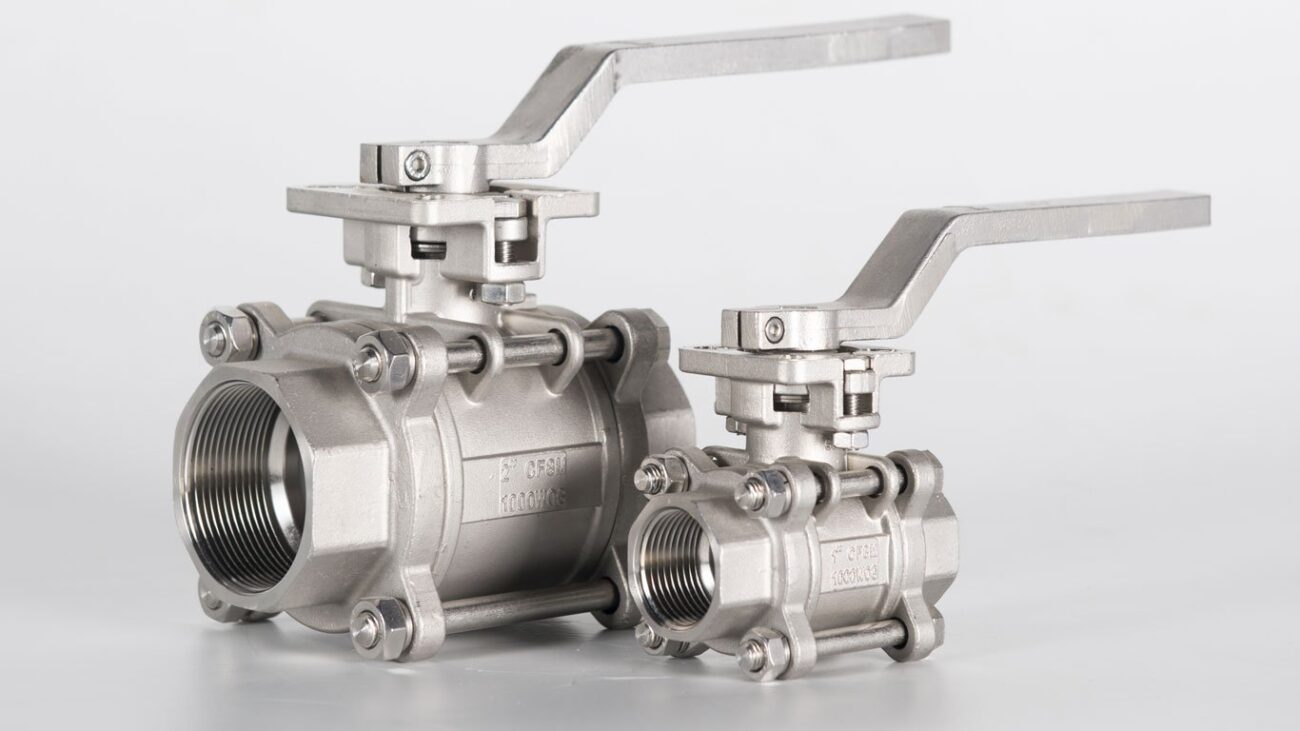Stainless steel instrumentation ball valves are key components in industries where precise flow control and safety are essential. These valves are widely used in chemical, oil and gas, pharmaceutical, and process industries due to their durability, reliability, and ability to handle high-pressure and high-temperature fluids. Understanding their design and function helps in selecting the right valve for your system and ensuring smooth operation.
What Are Stainless Steel Instrumentation Ball Valves?
Stainless steel instrumentation ball valves are specialized valves designed to control the flow of liquids and gases in a piping system. Unlike regular valves, these are engineered for precise flow control and are often used in measurement and monitoring systems, such as pressure gauges, flow meters, and other instrumentation devices.
The main advantage of SS instrumentation ball valves is their ability to provide tight sealing and minimal leakage. Made from high-quality stainless steel, these valves are resistant to corrosion, rust, and wear, making them ideal for demanding industrial applications.
Design Features of SS Instrumentation Ball Valves
The design of instrumentation ball valves focuses on accuracy, durability, and ease of use. Some important features include:
- Compact Body: These valves have a small, lightweight design, which allows easy installation in tight spaces.
- Ball Mechanism: The valve contains a spherical ball with a hole through the center. When the handle is turned, the hole aligns with the flow, allowing the fluid to pass. Turning the handle perpendicular to the flow stops it completely.
- Sealing Materials: Seats and seals made from PTFE or similar materials ensure leak-proof performance and long service life.
- Precision Construction: High-quality manufacturing ensures smooth operation, minimal friction, and accurate flow control.
A reliable stainless steel ball valve manufacturer ensures these design features are maintained to meet industry standards.
Function and Applications
The primary function of SS instrumentation ball valves is to control, isolate, or regulate fluid flow in instrumentation systems. These valves allow operators to start, stop, or modulate the flow with precision.
Applications of stainless steel instrumentation ball valves include:
- Controlling the flow to pressure gauges, flow meters, and other instruments.
- Isolating parts of a piping system for maintenance or inspection.
- Handling aggressive or corrosive fluids in chemical processing plants.
- Ensuring safe operation in high-pressure systems in oil and gas industries.
The versatility of these valves makes them essential components in industrial systems requiring precise control and monitoring.
Choosing the Right Valve
When selecting stainless steel ball valves for instrumentation purposes, consider the following:
- Material Quality: Ensure the valve is made from corrosion-resistant stainless steel suitable for the type of fluid in your system.
- Size and Pressure Rating: Choose a valve that matches the pipe size and can handle the system pressure.
- Sealing and Durability: Check for high-quality seats and seals to prevent leaks and ensure long-term performance.
- Compliance and Standards: A professional ball valve manufacturer will follow industry standards, ensuring safety and reliability.
It is also important to note the SS ball valve HSN code for taxation and regulatory purposes. Proper classification ensures compliance with import, export, or GST requirements.
Advantages of Stainless Steel Instrumentation Ball Valves
Some of the benefits of using SS instrumentation ball valves include:
- Corrosion Resistance: Stainless steel prevents rusting and chemical damage, making the valves suitable for aggressive environments.
- High Durability: These valves are built to last, even under high pressure and temperature conditions.
- Precise Control: The ball design allows accurate flow regulation for instrumentation systems.
- Low Maintenance: High-quality construction reduces wear and tear, lowering maintenance costs.
- Versatility: Can be used in a wide range of industries including oil and gas, chemicals, pharmaceuticals, and water treatment.
A trusted stainless steel ball valve manufacturer ensures that each valve meets these quality standards and performs reliably in demanding conditions.
Conclusion
Understanding the design and function of stainless steel instrumentation ball valves helps in selecting the right valve for your project. SS instrumentation ball valves provide precise flow control, excellent durability, and leak-proof performance, making them essential in various industrial applications.
By choosing a reliable stainless steel ball valve manufacturer or ball valve manufacturer, you ensure that your instrumentation systems operate safely and efficiently. Pay attention to material quality, design features, and standards compliance, and always consider the SS ball valve HSN code for proper classification. Investing in high-quality stainless steel instrumentation ball valves guarantees long-lasting performance and smooth operation in your industrial systems.
